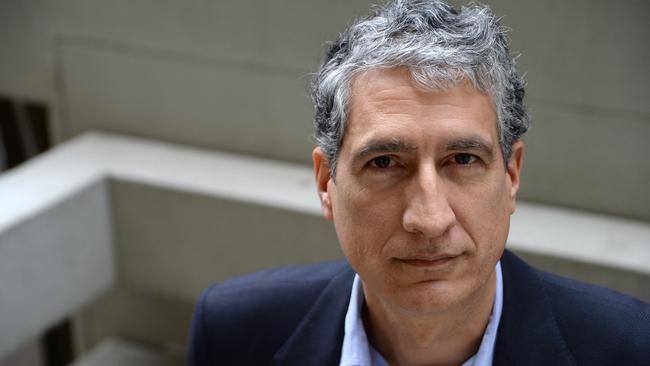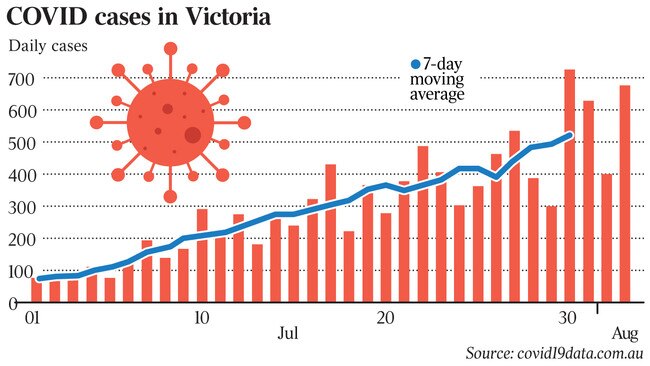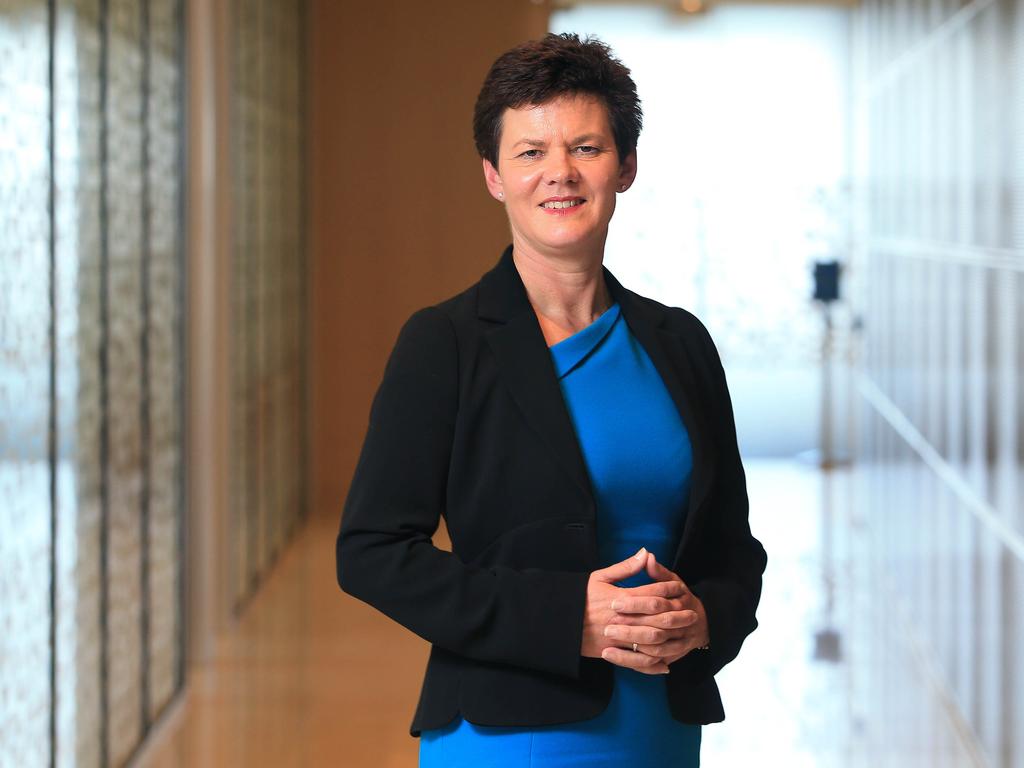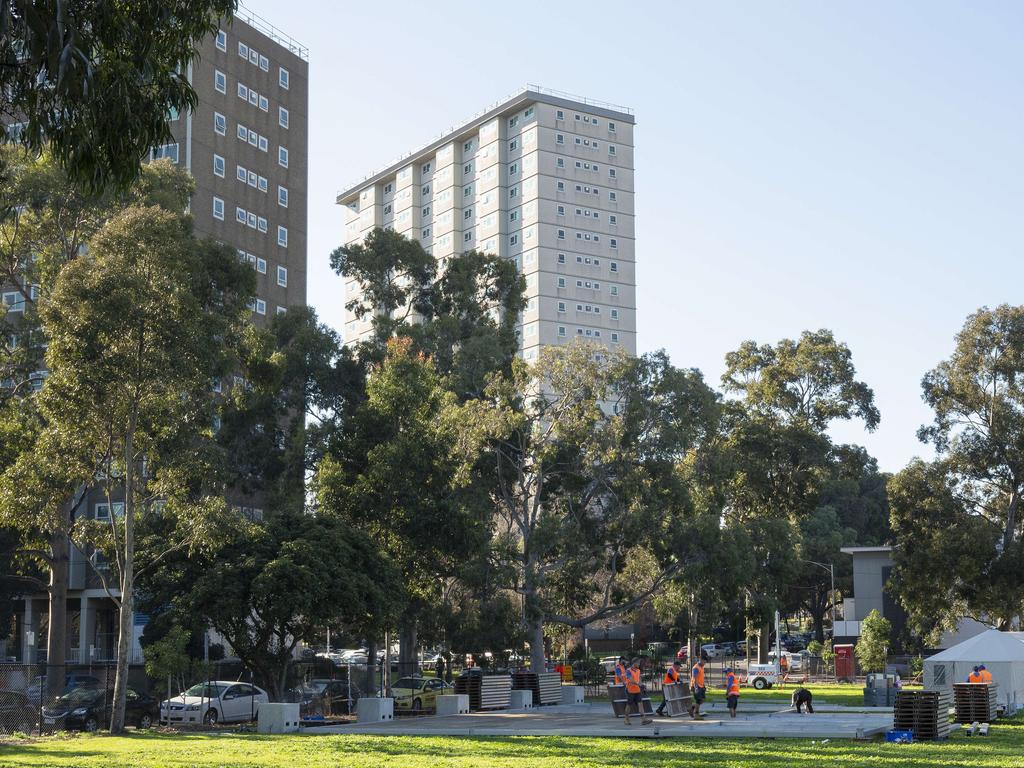Coronavirus: Lockdown costs ‘enormous’, Orica boss Alberto Calderon says
Orica boss Alberto Calderon says the ‘obsession’ with Covid deaths may be good politically, but it’s bad for society.

The chief executive of explosives manufacturer Orica has questioned the government’s strategy to stop the coronavirus, warning against the costs of blanket lockdowns and a damaging “obsession” with COVID-19 deaths over those from other causes.
In a wide-ranging interview with Sky’s Business Weekend on Sunday, Alberto Calderon said the mental and health costs of trying the eliminate the virus from Australia — including “months and months of lockdown” — would be “enormous”.
“There seems to be an obsession with COVID deaths, but nobody is talking about the rest of the excess deaths,” he said, speaking from Melbourne, which is facing a six-week curfew and tough new restrictions on businesses.
“It’s not clear to anybody if they want to go for mitigation, suppression or elimination.
“Are we trying to do the New Zealand thing, going for zero and locking Australia down until there’s a vaccine, even if there ever is one? That hasn’t been articulated well.”
Victorian Premier Dan Andrews declared a state of disaster and emergency on Sunday, providing police with sweeping powers to fine individuals found outside their home without good reason between 8pm and 5am.
More details about business closures would be provided on Monday, the Premier said.
“If we are going to go for elimination and then months and months of lockdown, the mental and total heath costs will be enormous,” Mr Calderon said.
Victoria announced a further seven deaths on Sunday, including three women in their 70s and a man and woman in their 90s. All but one of the deaths occurred in nursing homes.

“The deaths are not only COVID; this obsession with COVID deaths may be politically good but it’s bad for society,” Mr Calderon added, referring to studies that estimated there were hundreds of extra suicides in Australia, and the possibility that fewer people were presenting at hospitals and doctors due to fear of the virus.
Mr Calderon said Victoria in April had 400 excess deaths — that is, 400 more deaths than the usual number for that month, and far more than the number of deaths ascribed to the coronavirus.
Meanwhile, NAB chief executive Ross McEwan said: “The measures announced today by the Victorian Government are very serious and will have a deep impact on families, businesses and the economy — but they are necessary to protect the community and we support them.
“As an employer of thousands of Victorians, we’ll be reinforcing to all our colleagues the need to follow the government’s health advice and do the right thing at all times.
“That’s the only way we’ll get through this together.
“Throughout this crisis our priority has been the health and wellbeing of our colleagues and the community and making sure we can provide essential banking services, and that continues.”
A longstanding critic of gas policy, Mr Calderon also told Sky efforts to revive manufacturing in Australia would come to little without policies to bring about cheaper gas prices.
“Australia is the only large producing county in the world where the domestic prices are higher than international prices,” he said.
“In not a single other producing country, not Canada, US, the Middle East, not Russia, is this the case.
“Here in the east of Australia we pay roughly double the price for gas than what our Japanese competitors pay for Australian gas. That makes no sense, and it is still happening.”
Orica, which manufactures explosives for the mining and construction sectors, lifted its first-half profit to $165m in the six months to March.
Mr Calderon said demand had remained strong for its product since then, except when affected by quarantine measures in certain jurisdictions overseas.
“There’s been infrastructure builds, and massive fiscal stimulus is compensating any reduction in private demand,” he added.
“As a result of mining activities being confirmed as essential services in most countries, over 90 per cent of our volumes have remained intact following COVID-19, with limited impact in Australia and the US, which are two of our major regions,” Mr Calderon said in May.
“The region of the world most affected for us is Latin American, but even there is coming back to around 60 or 70 per cent (production),” he said on Sunday.
Orica’s share price has hovered narrowly around $17 since March.
The government’s economic update released in July pencilled in an unprecedented 19 per cent slump in non-mining investment this financial year. Mr Calderon said he was worried about the prospects for a revival in private investment, which on his estimates was at the lowest level as a share of GDP since at least 1960.
“The era of China is over, so it’s not going to be mining investment that will get us out of this,” he added.
“The only way the economy will grow more than 2 per cent a year is with private investment; if nothing is done to fix it we’ll drop to growth with a 1 in front of it,” he said.
“I’m not a fan of corporate tax reduction, but stimulus to investment through taxes, something like that, has to be done,” he said.
The government’s budget update had forecast economic growth of minus 3.75 per cent for 2020.
Chris Richardson, director of Deloitte Access Economics, said Victoria’s latest measures introducing stage four restrictions would undermine the government’s forecasts.
“They’ve probably allowed themselves some wriggle room but it’s clearly worse than that now,” he said.








To join the conversation, please log in. Don't have an account? Register
Join the conversation, you are commenting as Logout